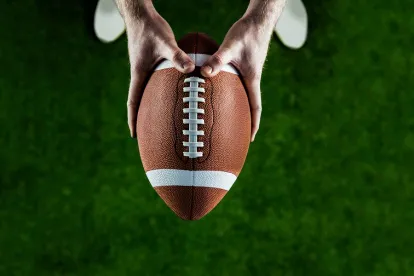On August 27, 2020, eight Nebraska football players commenced litigation against the Big Ten Conference in the District Court of Lancaster County, Nebraska. The lawsuit asserts that the Big Ten Conference’s cancellation or possible delay of the 2020 college football season was “arbitrary and capricious.” In support of the same, the student-athletes point to the SEC’s, Big 12’s and ACC’s decisions to move forward with their college football seasons.
The lawsuit alleges the contractual procedures required to cancel or delay the season were not followed. Moreover, the lawsuit asserts that although, the players are not parties to that contract, they enjoy certain rights as third-party beneficiaries and therefore have standing to assert those claims. Legally, the players’ assertion that they somehow enjoy third-party status is in my opinion extremely weak. Under Nebraska law, in order for the players to enjoy third-party beneficiary statute, “it must appear by express stipulation or by reasonable intendment that the rights and interests of such unnamed parties were contemplated and provision was made for them.” Properties Inv. Group v. Applied Communications, 242 Neb. 464, 470 (1993). In other words, the Court is likely to look to the express language of the contract or governing documents between the member institutions to determine whether or not it expressly or reasonably confers the rights to student-athletes to sue for violating the same. I expect that the express language of the contract between the 14 schools in the Big Ten does not give rights to their student-athletes to sue.
The lawsuit also alleges that because these players were permitted under Nebraska state law to sell their name and likeness the Big Ten’s decision to cancel or delay the season will result in damages. The players’ lawsuit alleges that the Big Ten tortuously interfered with their business expectancies. Factually, those claims are problematic because a review of the rooster, reveals that most of the plaintiffs are redshirt freshman with little to no playing experience. Moreover, based upon both the short and long term uncertainty concerning COVID-19, it will be extremely difficult, perhaps impossible for the players to prove that the Big Ten’s decision was “arbitrary and capricious.” Douglas Cnty v. Archie, 295 Neb. 674, 688 (2017). Nebraska law holds that an “action is ‘arbitrary and capricious’ if it is taken in disregard of the facts and circumstances of the case, without some basic which would lead a reasonable and honest person to the same conclusion.” In my opinion, based upon the medical and scientific data and the member institutions concerns for the health and well-being of their students, it will be next to impossible for the plaintiffs to meet that extremely high burden. Even if it turns out that the Big Ten made the wrong decision will not be dispositive to this issue.
The players’ lawsuit is also legally flawed because Nebraska law holds that damages cannot be speculative or conjectural. Pribiil v. Koinzan, 266, Neb. 222, 227-228 (2003). Although, the players assert that if they were given the opportunity to play, it would have resulted in them being able to sell their name and likeness, I suspect none of these players had contracts, endorsements or agreements when the Big Ten decided to cancelled or delay its college football season. If so, I believe the players’ damages would be speculative or conjectural and not subject to recovery. Because this is a legal issue, not a factual question, I suspect, the claim is likely to be dismissed at some point in the litigation.
I expect the Big Ten to file a pre-answer motion seeking the dismissal of the entire. I expect the Big Ten to assert that the players do not enjoy third-party beneficiary status, the decision was not arbitrary and capricious and that the alleged damages as asserted in the case are speculative and conjectural. While the Court in deciding a pre-answer motion to dismiss is required to assume all of the facts contained in the lawsuit are truthful and accurate, I suspect that most, if not all of the claims asserted in this lawsuit will be dismissed. Even if the damages issue were to survive a pre-answer motion to dismiss, I suspect after the completion of discovery the remainder of the case would be dismissed by way of summary judgment motion.



 />i
/>i

